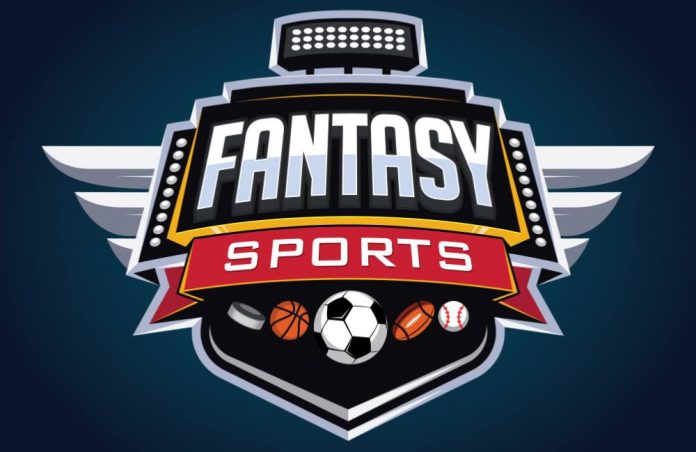This article is written by Yash Kapadia. This article answers the question as to what constitutes a game of skill and chances through various examples including judicial dictums.
Table of Contents
Introduction
Let’s be crystal clear and honest, gambling laws in India are said to be extremely complicated and open-ended with vague words used which lead to difficulty in easy interpretation. The primary reason for this drawback is that the governing laws are extremely outdated which were formed before the independence of India. Gambling laws in India were usually governed by the Central Act called Public Gaming Act, 1867.
However, after India’s independence and the Constitution coming into effect in 1950, betting and gambling were made a part of Entry 34 of the State List. In layman’s terms, it meant that the State Governments in India will have the power to formulate laws regarding betting and gambling laws for their respective states.
Coming back to our topic, if we take a glance through the Public Gaming Act, 1867 we learn that any game of skill will not be treated as gambling or illegal but any game of chance will be treated as gambling and will be illegal. However, today when we speak of gambling we understand it in the traditional sense as well as the modern sense which includes physical and online gambling. However, post-independence most states adopted their acts by including amendments to the Central Act.
There are various gambling laws in our country. First, which is governed by the Central Law. Secondly, which is governed by the State laws and lastly laws which differ based on being physical or online game & a game of skill or a game of chance.
Through this article, we shall dive into the deep waters of what constitutes a game of skill and a game of chance and after a ten to twelve-minute read, we shall have a clear picture of how to differentiate between both of these.
Games of skill and games of chance
In a bare-bones version, ‘gaming’ is envisaged to be “a practice or act of gambling. An agreement between two or more persons to play together at a game of chance for a stake or wager which is to become the property of the winner, and to which all contribute. The elements of gaming are the presence of price or consideration, chance and prize or reward.” 1
Meaning
- A “game of skill” is based mainly on the mental or physical level of expertise of a player, rather than a chance. One of the most significant benefits of a game of skill is that it provides freedom to the players to explore their capabilities in the sport. These games invigorate the players to get accustomed to a certain set of rules while looking for ways to improve and implement different strategies through consistent practice. It is false that the game of skill does not have a chance component, in fact to a certain extent they do. However, it is the individual skills that determine the success rate. Example: Chess, Carrom, Rummy, Teen Patti, Horse Racing and Fantasy Sports are said to be games of Skill.
- A “game of chance” however is determined mainly by a random factor of any type. In games of chance, the usage of skill is present but a higher level of chance determines success. Games like playing cards, roulette, rolling a dice, or even picking a numbered ball are reflected upon as chance-based games. It is pertinent to note that players here do not have control over the outcome of the result. Example: Blackjack, Roulette.
All games, naturally, consist of elements of chance and elements of skill. To determine whether any game is a ‘game of chance’ what essentially needs to be arrived at is that, the element of chance predominates over the element of skill.2 In a nutshell, a game of chance is defined to be a game in which chance rather than skill determines the outcome.3
The difference between skill and chance
There is some major differentiation between any game of skill and a game of chance. To begin with, the primary difference lies in “who” the said player is playing against. If the supposed player is playing against the house (in simpler words the casino itself is called the house), the player is involved in a game of chance. However, on the flip side when the player is pitted against other similar players, it is looked upon to be a game of skill. Moreover, if any individual can successfully, without any doubt prove that a particular game involves the use of skills like statistics, math and strategies majorly, along with a slight factor of luck or chance, the game would be categorized as a game of skill.
There are currently a bunch of games like Ludo, online rummy that are currently trying their level best to persuade in order to get it classified as a game of skill. It can be conveniently stated that the debate over which set of games are based on skills and which ones are not will go on for quite a time with no end date till a proper method of resolving this issue is thought of.
The good part about this complicated situation is that there are various judicial dictums, especially by the Hon’ble Supreme Court of India on matters relating to classifying particular groups as games of skills and games of luck. The same is discussed below.
How the Judiciary solved this complicated puzzle?
There have been numerous cases filed by groups and gaming organisations to classify them as a game of skill to get legal status and never be termed as illegal. However, when the Hon’ble Courts of India are posed with difficult questions, an answer to those follows with eloquent explanation to their interpretation of that particular subject matter. The Courts have, from time to time, weighed skill and chance carefully in each game to determine the predominance of one over the other and decide whether betting in such games would amount to gambling. Below are some landmark judgements passed by Indian Courts which put a full stop to the confusion between games of skill and chance.
It has been held in Manoranjithan Manamyil Mandram v. State of Tamil Nadu (2005)4 that whether a game is considered to be one of chance or skill is a question of fact to be decided on the facts and circumstances of each case.
Rummy as a game of skill
The Hon’ble Supreme Court, in the case of State of Andhra Pradesh v. K. Satyanarayana (1968)5, interpreted the difference between the three-card game ‘Teen Patti’ and ‘Rummy’ and held that while the former was a game of pure chance, the latter required a certain degree of skill because one has to memorise the fall of the cards and the building up of Rummy requires considerable skill in determining which cards to hold and which one to discard. Therefore, it was held by the Apex Court that the game of rummy has a greater prevalence to qualify as a game of skill.
Horse Racing as a game of skill
In the case of Dr. K.R. Lakshmanan v. State of Tamil Nadu (1996)6, the Hon’ble Supreme Court while dealing with the issue of horse racing, held that horse racing is neither to be considered as ‘gambling’ nor ‘gaming’, but a game of ‘mere skill’ and that the expression ‘mere skill’ would mean a substantial degree or prevalence of skill. This was interpreted so on the reasoning that horse-racing is based on the inherent capacity of the animal, the competence and proficiency of the jockey riding it, the form and physical fitness of the horse, the weight it can carry and the distance of the race which are all equitable facts capable of being assessed or studied by race-goers. Thus, it was held that the prediction of the result of the race is the result of knowledge, study and observation viz. skills and not a mere chance.
Poker as a game of skill
With reference to the game of Poker, the Hon’ble High Court of Karnataka, in the case of Indian Poker Association (IPA) v. State of Karnataka (2013)7, observed that Poker is a game of skill and that no license is required for conducting a game of skills, including Poker, in club premises meant for recreational purposes, as long as they are conducted in accordance with the law enacted by the State. It further held that since Poker is not included within the head of gambling activities under West Bengal Gambling and Prize Competitions Act, 1957, the officers of the law cannot interfere with such games.
However, the Hon’ble Gujarat High Court, had a contrary view in Dominance Games Pvt. Ltd. v. State of Gujarat (2017)8, while following the Supreme Court’s decision in K. Satyanarayana’s case (discussed above), has held that Poker is a “game of chance”. However, an appeal to this decision is pending in the same Court.
To date, views are exchanged whether or not Poker is a skill-based game or not and in many cases online Poker is considered to be illegal. Various service providers and online sites have even modified the game in order to make it a more skilled game. To back this, certain sites have eliminated the luck of draw element from the game and for this reason, the skills of the players have become predominant in determining the winners of the game.
Fantasy sports- game of skill or chance
In common words, fantasy sports games are games that involve users who draft fantasy teams based on certain pre-conditions from a selective list of players who are scheduled to play live games on a particular day. The users then have to pay an entry fee to enter a contest and enter a pool for distribution among the users after deduction of a certain fee by fantasy sports games providers (the App). The users generally draft their teams based on their application of knowledge, attention, experience and access to information regarding the relevant sport. The said user then collects points based on the draft team he has prepared to enter into the pool of competition. The users are further ranked based on the points their selected players accumulate in that particular contest as per a set of point-rules/scoring metrics pre-determined by the service provider.
While dealing with this issue of whether the fantasy sports like Dream 11 qualifies as a game of chance or a game of skill, various High Courts, after careful analysis of different facts and circumstances, have held it to be a game of skill.
The Hon’ble Punjab and Haryana High Court in Varun Gumber v. Union Territory of Chandigarh (2017)9, has held that games such as horse, boat and foot racing, football, baseball, chess, golf are games of skill and significant judgement and not a game of chance. However, in a fantasy game, a participant user who builds a virtual team would require considerate skill, knowledge, judgement and discretion, as the participant has to estimate the relative value of each athlete/sportsperson as against all athlete/sportsperson available for selection. He is required to study the strengths and weaknesses of the athlete which would determine the result of the game and his chances of winning a contest. The Hon’ble Court further held that a better result in a fantasy sports game like Dream 11’s basically arises out of a user’s own exercise of superior knowledge, judgement and attention to detail. It was therefore held to have involved the element of skill which had a dominant influence on the outcome of the Dream 11 fantasy, therefore, not falling within the activity of gambling which was prohibited and was termed as a “game of skill”. An appeal was filed in the Supreme Court but the same was dismissed in 2019.
A similar finding was also reached by the Hon’ble Bombay High Court in the case of Gurdeep Singh Sachar Vs. Union of India and Ors. (2019)10 wherein the Court observed that it was evident that the success in Dream 11 fantasy sports depends upon the user’s ability to exercise his skill based on superior knowledge, judgement and attention. Therefore, the result is not dependent on the winning or losing of a particular team in the real world game on any particular day. It is without an iota of doubt, a game of skill and not a game of chance. The Court held that “The attempt to reopen the issues decided by the Punjab and Haryana High Court in respect of the same online gaming activities, which are backed by a judgement of the three judges bench of the Apex Court in K.R. Lakshmanan (supra), that too, after the dismissal of SLP by the Apex Court is wholly misconceived.”
A Special Leave Petition was filed by the Union of India against the Bombay High Court judgement. However, it was dismissed by the Hon’ble Supreme Court. However, Hon’ble Justice Shri R. F. Nariman and Justice Shri S. R. Bhat gave liberty to the Union of India to file a limited review petition before the Bombay High Court with respect to the issue of Goods and Service Tax evasion in that case.
Another petitioner approached the same bench to seek a review of the same case However, this time around the Supreme Court irked a stern statement that: “It is reiterated that in accordance with our order dated 13.12.2019, the only scope of the review filed in the Bombay High Court is with respect to GST and not to revisit the issue as to whether gambling is or is not involved.”
Latest Case
The Rajasthan High Court in October 2020 in the case of Chandresh Sankhla vs State of Rajasthan (2020)11 dismissed a writ petition filed in the nature of a Public Interest Litigation and it opined that the issue of considering Dream 11, the fantasy sports game, having any element of betting/gambling is no more res integra in view of the judicial dictums and orders passed by the Bombay High Court, Punjab and Haryana High Court and SLPs (discussed above) that have been dismissed against the orders of these High Courts.
A Special Leave Petition12 was filed to sort out the ban of the online game Dream11. However, the same was dismissed and the judgement of Rajasthan High Court (discussed above) was upheld. The Apex Court was asked to consider a New York Supreme Court judgement (2020)13 which had to answer a similar challenge wherein it was held that the law challenged as unconstitutional on the ground that it violates the prohibition against gambling in NY Constitution, the Court was of the opinion that although participants in interactive fantasy sports contests may use their skill in selecting teams they no control whatsoever on how the athletes on their Interactive Fantasy Sports would actually perform in the real world.
We can, therefore, state that relying on the aforesaid cases, the Courts have carefully evaluated the amount of skill involved in a particular game so as to not amount to gaming or ‘gambling’ as prohibited under the Indian gambling laws.
What constitutes game of skill and game of chance as per Judicial Dictums
|
Game of Skill |
Game of Chance |
|
|
Plays against |
Another similar player/user |
The house |
|
Driven by Player’s |
Mental, physical expertise |
Randomised factor of any type |
|
Requires |
Practice, experience, tactics |
Mostly chance/luck-based |
|
Winning depends |
Substantially on player’s skill |
On mere luck |
|
The result is |
Wholly certain |
Wholly uncertain or doubtful |
|
Example |
Poker, Rummy, Fantasy Sports |
Rolling of a dice, lottery, roulette |
Way forward
We have definitely come a long way from outdated laws to systematic state governed laws but only in a few states. With a meteoric rise in the field of technology and online games now gradually taking over and most certainly preferred over physical ones, a set of laws and reforms can be formulated at the Central Level which shall lead to a rise in an emerging market like India. From a gambler’s point of view, with a set of rules and regulations in place, one does not have to worry about the laws they may be breaking. To be honest, India is a long way from being a gambling haven.
If the service providers and online sites’ owners sit and come to smart conclusions with the Government which benefits the country as a whole then this process can be fast tracked. It is impossible to predict the future therefore only time will tell what the future beholds for the laws of gambling markets.
Conclusion
The whole shebang of this article was to ascertain what constitutes a game of skill and what would constitute a game of chance. We have, through definitions, interpretations in layman terms and through various judicial dictums ascertained which games require more skill than chance and what is needed to be proved in order to prove a game of skill and a chance.
We have furthermore, cleared out doubts on which category fantasy sports lie in along with a Supreme Court judgement decided this week. The blurry image of these two terms has become clear and it is not a complicated subject.
As mobile use, internet use, and the market of online gambling increases, the government starts to see the potential profit in regulating the market further to retain those profits earned within the country. Only time will tell in which direction the online gambling laws in India will take. A higher number of regulated states is not impossible in the current scenario.
References
- Shri K. L. Mansukhani v. Senior Inspector & Ors., 1999 SCC OnLine Bom 843 and Black’s Law dictionary, 6th Edition, Pg. 679
- Refer to Para 24 of Shri K.L. Mansukhani v. Senior Inspector of Police & Ors., 1999 SCC OnLine Bom 843
- Black’s Law Dictionary, 6th Edition (Page 679)
- AIR 2005 Mad 261
- AIR 1968 SC 825
- (1996) 2 SCC 226
- 2013 SCC OnLine Kar 8536
- 2017 SCC OnLine Guj 1838
- 2017 Cri LJ 3836
- (2019) 75 GST 258 (Bombay)
- 2020 SCC Online Raj 264
- Avinash Mehrotra vs State of Rajasthan [SLP (Civil) Diary No. 18478/2020]
- White v Coumo; 2020 NY Slip Op 00895 [181 AD3d 76]
LawSikho has created a telegram group for exchanging legal knowledge, referrals, and various opportunities. You can click on this link and join:
 Serato DJ Crack 2025Serato DJ PRO Crack
Serato DJ Crack 2025Serato DJ PRO Crack











 Allow notifications
Allow notifications


